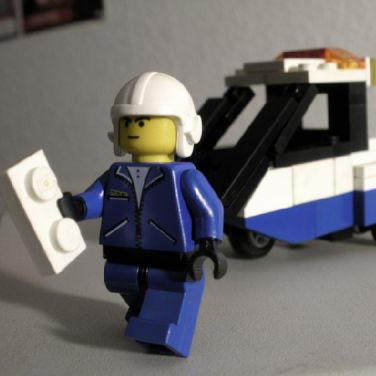I spent the five happiest years of my life in a morgue. As a forensic scientist in the Cleveland coroner’s office I analyzed gunshot residue on hands and clothing, hairs, fibers, paint, glass, DNA, blood and many other forms of trace evidence, as well as crime scenes. Now I'm a certified latent print examiner and CSI for a police department in Florida. I also write a series of forensic suspense novels, turning the day job into fiction. My books have been translated into six languages.
Unfortunately, same answer as above--you really need a pathologist to answer that. But I will ask the M.E. investigator when she gets back to me on the BAC question!
Okay, she said:
Welllllll….. that one’s trickier. Drowning is often a ‘diagnosis of exclusion’ so you may NEVER see evidence of drowning, even moments after death (although we look for foam in the airway and fluid in the sinuses to corroborate investigation findings). The mere process of burial could potentially destroy any pertinent evidence that would exist in a drowning, even if decomp hasn’t begun by the time the body is “dug up”. Now in a child, we’d look for petechiae, bruises (that you can only see by removing the skin), torn frenulam, etc.…
I can't think of anything that's industry-wide. Errors in assumptions can be made at any time by any body--like, I might assume you aren't going to get DNA off a gun trigger because I never have, while a brand-new person might assume you will get it regardless of any other factors because a textbook said it was possible, and we both might be wrong or right in that particular case but not others. So most errors would be made by assuming something can't be done, either because a tech or officer never had any luck with it or because they aren't up with the latest information, which will happen anywhere because no one can keep up with anything. As for study, the only thing holding that back is what's always been holding it back--time and money. Most of us can barely keep up with our caseload, much less take on a research project, and most government budgets have been battered down to sustenence level. It's getting better as the economy improves, and there are major research projects underway through the various forensic organizations, FBI and NIJ.
To ever-more sensitive DNA collection and analysis, I believe. The other growing fields will probably be the analysis and utilization of computers, cell phones and video surveillance.
That's a tough one, because unlike television I don't take it personally whether the case is resolved or not. Again unlike TV, I'm not in charge of the case, the detective is. I'm just a cog. I also don't deal with family or witnesses so I'm sort of emotionally once-removed from the trauma. So the most frustrating cases are those in which I can't find anything that helps. Say the victim and the suspect live in the same house so that any fingerprints or DNA of the suspect is to be expected and doesn't prove anything. Or we have no suspects and fingerprints and DNA at the scene don't match anyone in our system so that's not helping either. So then the most satisfying cases are those in which I find and analyze a piece of evidence that can tell us with certainty who was present or what occurred where. But either way I don't take it personally. I can't control what's there, only what I do with it. Sometimes you're lucky and sometimes you're not.
Call Center Employee (Retail)
 What's the meanest thing someone's said to you on the phone?
What's the meanest thing someone's said to you on the phone?
Meter Maid
 Is it tough to have a job that consists exclusively of ruining peoples' days?
Is it tough to have a job that consists exclusively of ruining peoples' days?
Swim Instructor
 Do parents ever get angry at you personally if their kid isn't learning fast enough?
Do parents ever get angry at you personally if their kid isn't learning fast enough?
That depends on a lot of factors. In Cleveland I went to court a lot more often because--since it was a coroner's office--practically every case was a homicide and many went to trial. In Florida at the police department we have few homicides and a lot of burglaries and such, the types of crimes that tend to get pled out or dismissed. So I might go to court twice in one week and then not again for three months. And yes, the popularity of crime dramas has definitely made things more difficult because a jury expects to be 'wowed' with cool science in each and every case, and sometimes that just isn't there. It's not a bad thing that there's increased scrutiny on forensic testimony, of course, only that expectations can be unrealistic--in both directions. It can harm the prosecution's case if the jury expects DNA evidence in, say, a robbery case where someone walked in and walked out and didn't leave any DNA, and it can harm a defense's case if the jury has such faith in science that that evidence is all they give weight to. (Excuse the clunky grammar please.)
I don't know what you mean by 6 or 12, but I asked a former co-worker who used to analyze glass in an ICP (inductively coupled plasma) and he said the current state of the art for glass analysis is LA-ICP-MS (LA = laser ablation). This uses a laser to vaporize a small amount of sample and then runs it through both an ICP and a mass spec. (only about $300,000). I'm sure a small amount is a very small chip or sliver. I know when I did glass analysis on an old hot stage we only needed a tiny chip. He also said you should contact Florida International University because it is "the epicenter of glass analysis".
Well, time and a moist environment definitely don't help, but I'm afraid that's a question for a pathologist. Sorry I can't be more help.
-OR-
 Login with Facebook
Login with Facebook (max 20 characters - letters, numbers, and underscores only. Note that your username is private, and you have the option to choose an alias when asking questions or hosting a Q&A.)
(A valid e-mail address is required. Your e-mail will not be shared with anyone.)
(min 5 characters)
By checking this box, you acknowledge that you have read and agree to Jobstr.com’s Terms and Privacy Policy.
-OR-
 Register with Facebook
Register with Facebook(Don't worry: you'll be able to choose an alias when asking questions or hosting a Q&A.)